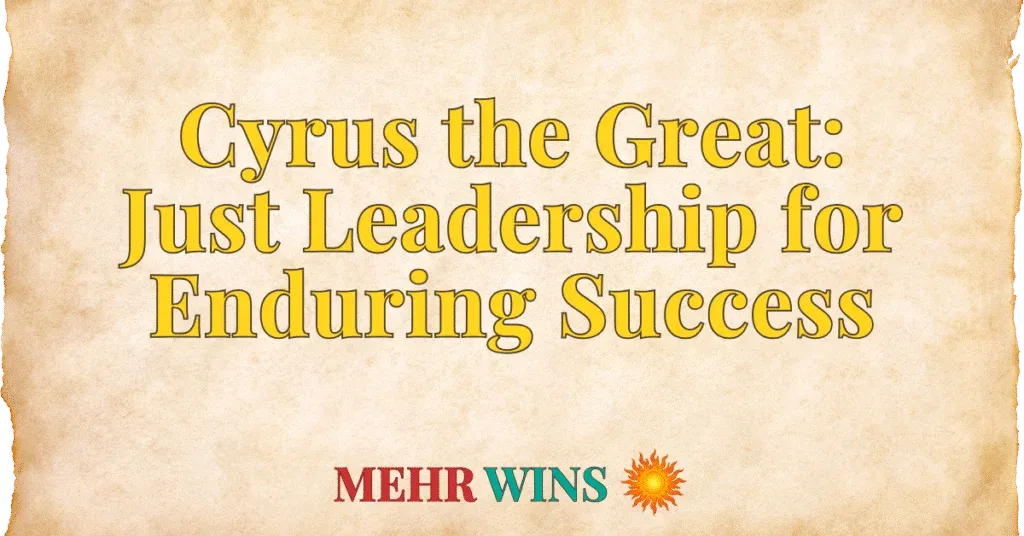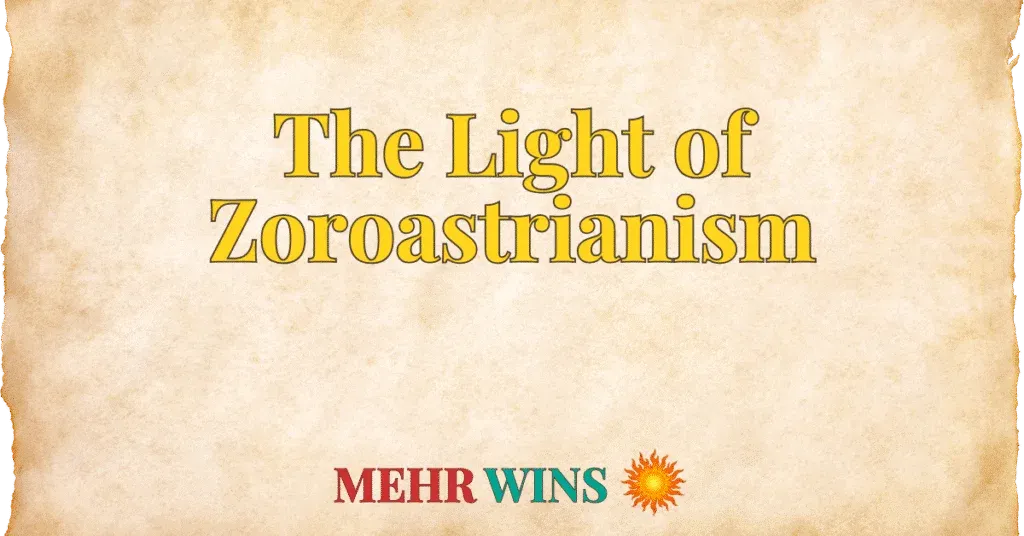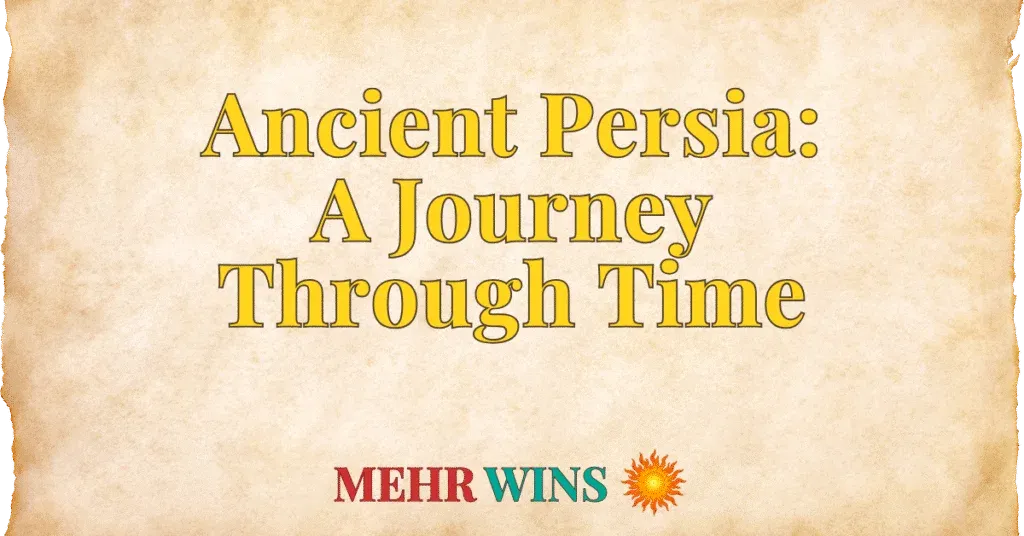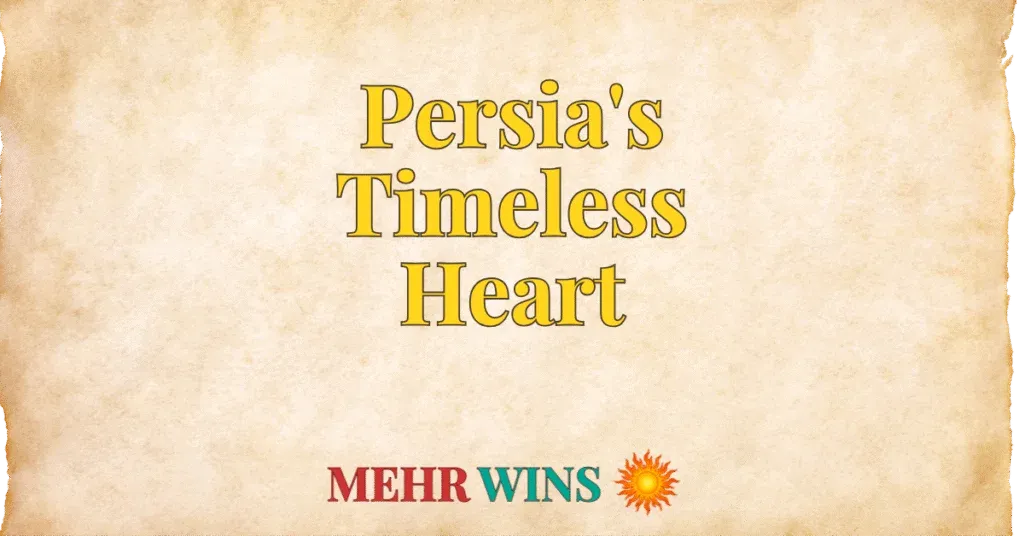
In the grand tapestry of human civilization, few figures stand out with the enduring brilliance of Cyrus the Great, the visionary founder of the Achaemenid Persian Empire. His legacy, forged not just through military might but by a revolutionary approach to governance, offers a profound blueprint for what we at Mehr Wins understand as true, lasting success: achieving triumph not through dominance and oppression, but through integrity, empathy, and a broad vision that elevates the collective.
Unlike many of his contemporary conquerors, whose reigns were marked by brutal subjugation and cultural annihilation, Cyrus introduced an ethos of tolerance and respect that was truly ahead of its time. His empire, the largest the world had yet seen, was a testament to the power of a leadership philosophy rooted in justice, a stark contrast to the fear and tyranny often associated with imperial expansion.
A Radical Approach to Conquest and Rule
Cyrus’s distinct approach to conquest was a radical departure from the norm. When Babylon fell to his forces in 539 BCE, the city braced for the customary pillage, slaughter, and desecration of its gods. Instead, Cyrus entered as a liberator. The famous Cyrus Cylinder, a baked clay artifact discovered in 1879, serves as a remarkable testament to his policies. This ancient document, often hailed as an early declaration of human rights, details Cyrus’s commitment to restoring shrines, returning deported peoples to their homes, and honoring local deities.
This was not merely an act of generosity but a calculated and profoundly effective strategy. By respecting the customs, religions, and traditions of conquered peoples, Cyrus fostered loyalty rather than resentment. He allowed a degree of local autonomy through a system of satrapies, or provinces, each governed by a satrap, which significantly reduced resistance to Persian rule and facilitated the smooth integration of diverse populations into his vast empire.
Imagine the foresight required for such a policy. In an era where victor’s justice typically meant absolute imposition of the conqueror’s will, Cyrus understood that genuine power stemmed from willing cooperation, not forced submission. He allowed the Jews, exiled in Babylon, to return to Jerusalem and rebuild their temple, an act that earned him immense gratitude and a unique place in biblical narratives. This wasn’t just religious tolerance; it was an acknowledgment of inherent human dignity and the belief that a stable empire was built on the contentment of its diverse inhabitants.
Ethical Leadership: The Core of Mehr Wins
The connection between Cyrus’s leadership and the Mehr Wins philosophy is striking. At its heart, Mehr Wins champions the idea that true success is not merely about individual gain or short-term victories. It’s about achieving “wins” that are profound and lasting, not just for an individual or a single entity, but for a collective, a community, or even an entire civilization. Cyrus embodied this principle.
His leadership was characterized by:
- Empathy: Cyrus consistently demonstrated an understanding of and concern for the well-being of those he governed, whether newly conquered or long-time subjects. He reportedly ordered his governors to treat their subjects as if they were their own children, a remarkable directive for any ruler, let alone a military conqueror. This empathy translated into policies that minimized suffering and maximized stability.
- Integrity: The promises inscribed on the Cyrus Cylinder—to return gods to their shrines, to allow displaced people to go home, to rebuild devastated cities—were not empty words. They were principles that guided his actions, building trust and legitimacy across his vast domain. This integrity meant that his rule was seen as just, fostering a rare sense of peace that endured for centuries.
- A Broader Vision: Cyrus’s vision extended far beyond merely expanding his territorial control. He sought to create a unified and prosperous empire where diverse cultures could coexist and even flourish. He understood that long-term stability and economic vitality depended on respecting local traditions and empowering local communities, rather than crushing them under a uniform Persian identity. This broad vision allowed him to build an empire that lasted over 200 years, a remarkable feat for its time.
Lasting Impact and Modern Relevance
Cyrus’s legacy reverberates through history. His model of governance influenced later empires, including the Romans, and his policies of religious tolerance set a precedent that would be admired and, at times, emulated by future leaders. Figures like Thomas Jefferson and Benjamin Franklin studied his leadership, finding inspiration in Xenophon’s Cyropaedia (a partly fictionalized biography that depicted Cyrus as a benevolent and wise ruler). The very principles of liberty, justice, and human dignity that Cyrus championed thousands of years ago still resonate in modern discussions of good governance and human rights.
For Mehr Wins, Cyrus the Great serves as a powerful historical example of how ethical leadership, infused with empathy and a broader vision, can lead to truly impactful and enduring success. It’s about understanding that the greatest “wins” are not achieved through sheer force or self-interest, but through a commitment to integrity and a dedication to fostering the well-being of all.
In a world still grappling with issues of conflict, intolerance, and shortsighted leadership, the ancient wisdom of Cyrus the Great offers a timely reminder: that real power lies in upliftment, true strength in compassion, and the most profound victories are those that benefit not just the few, but the many. This is the essence of Mehr Wins—a philosophy that finds its historical echo in the magnificent reign of Cyrus the Great.


